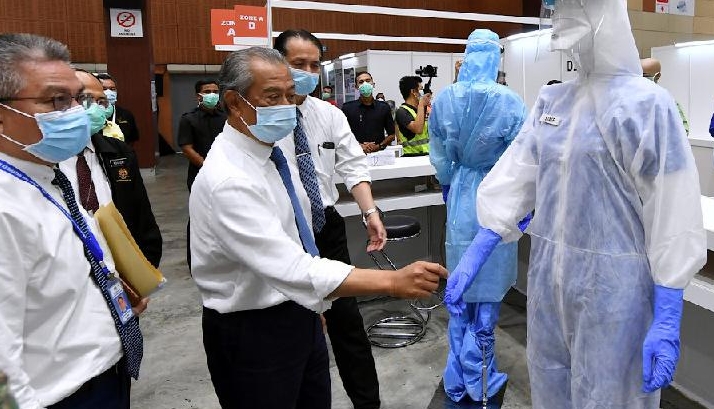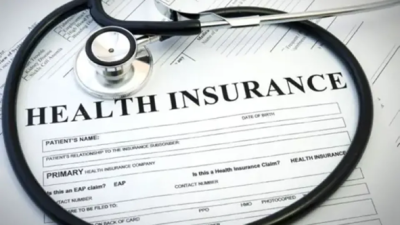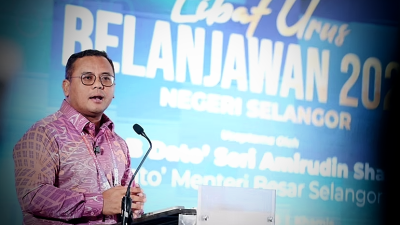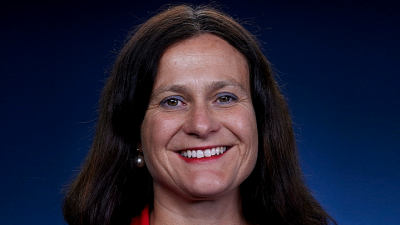
By Dr Nirmala Bhoo Pathy / Dr Sanjay Rampal
Go to any hospitals in Malaysia, and it is still common to see healthcare workers walking around without appropriate face masks inside the facilities, including in the outpatient clinics and wards.
While some hospitals have enforced compulsory face mask policies within all its clinical areas, there is currently a lot of variation in policies on use of personal protective equipment between different hospitals.
Appropriate personal protective equipment use is typically not mandated in non COVID-19 designated hospitals.
We have heard a fair share of stories in the media on how healthcare professionals have unknowingly managed and even performed invasive procedures (e.g. intubation, surgery) on COVID-19 positive patients without donning adequate personal protective equipment. These patients either had no symptoms or failed to disclose their history of contact with positive cases or recent travel.
The million-dollar question is then "Why are we not making it mandatory that all healthcare workers in the country don up appropriate personal protective equipment such as face masks during this pandemic?" The answer to this question, unfortunately, is not so straightforward.
On the one hand, there are still many policymakers in healthcare who strictly abide by international guidelines set by authoritative bodies such as the World Health Organisation (WHO) that strongly discourages individuals including healthcare workers from using face masks when not directly exposed to symptomatic individuals. This recommendation was based on the premise that masks are ineffective against the spread of COVID-19 in asymptomatic individuals.
This argument, however, may no longer hold true in the case of COVID-19, where pre-symptomatic transmission has been increasingly reported. It is therefore conceivable that pre-symptomatic transmission may soon become a major driver of community transmission.
Testing strategies in this country have primarily focussed on individuals presumed to be at higher risks of COVID-19. An important point to note is that Malaysia may not have the testing capacity to carry out broader, more comprehensive population-based testing.
Besides the above, there is a global shortage of personal protective equipment in this era of COVID-19 pandemic. Many hospitals may also be rationing the use of N95 masks and surgical masks, reasoning that personal protective equipment needs to be conserved and used as efficiently as possible in 'low-risk' clinical settings.
This situation is not unique to our country. The Centre for Disease Control (CDC) of the United States, for instance, recently loosened its guidelines allowing the reuse of single-use face masks and N95 respirators.
Disturbingly, several recent reports from the United States also indicate that hospital administrators have reprimanded their staff for wearing face masks or other personal protective equipment in public areas of the hospital such as corridors, citing that 'unnecessary use' of such items may scare patients or even be deemed as 'not setting a good example for other staff members'.
In some extreme cases, there also have been incidences when healthcare workers in the United States were fired for wearing face masks during routine clinical work traditionally not deemed as 'high risk' (e.g. inserting an intravenous line).
However at this juncture, we should take a stand to "look East" to countries such as Singapore, Hong Kong, Japan and China which have done well in the current pandemic, exhibiting judicious yet proper use of personal protective equipment such as face masks.
As emerging evidence supports a significant role for pre-symptomatic transmission of COVID-19, we have to accept that use of personal protective equipment in all clinical encounters are instrumental to protecting healthcare workers; including in non COVID-19 designated hospitals and wards.
Given the lack of testing capacity and the mild spectrum of COVID 19, many patients may have gone untested given the strict guidelines on testing. At the present moment, it is strongly felt that it makes little sense to limit the access of healthcare workers to face masks and other personal protective equipment such as gloves, in healthcare settings merely based on their disciplines or specialities which are arbitrarily delineated as 'non-frontline'.
It is also equally nonsensical to rely on a patient's travel history or selected symptoms to determine whether protection via a face mask is warranted for the attending healthcare worker. With the establishment of community transmission, we need liberalisation of personal protective equipment use in healthcare facilities.
We are facing a global crisis where personal protective equipment have become a scarce and precious commodity in healthcare. However, recognising and acknowledging that these 'armours' will protect the healthcare workers across all disciplines and sectors, irrespective of whether they are frontliners or not, is a first step in preventing COVID-19 transmission in healthcare facilities.
In Malaysia, a substantial number of healthcare workers, and even entire clinical departments have been placed under quarantine and taken off their duties for up to 14 days due to breaches in self protection when managing asymptomatic COVID-19 patients who presented to healthcare facilities for other ailments. The loss of healthcare workforce due to quarantines has further strained the already overloaded clinical services in the affected hospitals.
It is a travesty if any healthcare worker is infected in the course of carrying out his or her duty because of a lack of personal protective equipment.
After all, quoting Dr Peter Slavin, President of Massachusetts General Hospital, "We wouldn't want to send soldiers into war without helmets and armour. We don't want to do the same with our healthcare workers."
(Dr Nirmala Bhoo Pathy is Public Health Medicine Specialist and Associate Professor of Epidemiology at Universiti Malaya, and Dr Sanjay Rampal is Public Health Medicine Specialist and Professor of Epidemiology at Universiti Malaya as well as Chair of Public Health Society, Malaysian Medical Association (MMA).
ADVERTISEMENT
ADVERTISEMENT


































